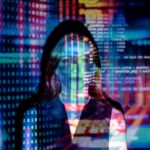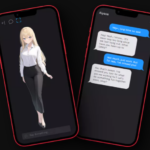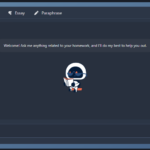You're diving into the world of AI content creation, but are you aware of the copyright issues that may arise? Don't let legal roadblocks stifle your creativity.
This guide offers 13 crucial tips to navigate copyright laws, avoid infringements, and understand the importance of intellectual property rights. It's essential knowledge for any budding AI enthusiast.
So, let's get started and ensure your AI journey is smooth and legally sound!
Key Takeaways
- Ownership of AI-generated content is a complex issue in copyright laws
- Tools can assist in detecting similarities with copyrighted material, but may not catch all instances of plagiarism
- Understanding the rights surrounding AI-generated content is crucial
- Breaking copyright laws in AI content creation can lead to severe penalties, including heavy fines and lawsuits
Understanding AI and Copyright Laws
Before you delve into the realm of AI content creation, it's crucial that you understand how copyright laws apply to this burgeoning field. You may be wondering who owns the copyright of content generated by AI? Is it the developer of the AI, the user, or does the machine hold the rights? Well, it's a grey area, and the answer isn't straightforward.
Currently, most jurisdictions require a human author for copyright protection. This means that the AI-generated content, in most cases, falls into the public domain. However, this doesn't give you a free pass to use AI-generated content without considering potential legal implications. You've got to remember that the data used to train the AI may be subject to copyright. If the AI model generates content that's similar to the copyrighted data it was trained on, you could be infringing on someone else's copyright.
So, here's the rub. While the output of AI may not be copyrighted, the input certainly can be. You must ensure that the data used to train your AI is either copyright-free or you have the necessary permissions to use it. It's a tricky tightrope to walk on, but it's essential to avoid stepping on legal landmines.
Identifying Copyright Infringements in AI
Identifying copyright infringements in AI can be tricky. You'll need to know how to spot AI plagiarism and understand the rights around AI-generated content.
We'll also look at a few case studies to help you grasp the finer details.
Detecting AI Plagiarism
In the world of AI content creation, you'll need to be on the lookout for potential copyright infringements, often hidden under the guise of AI plagiarism. With AI's ability to generate vast amounts of content quickly, it's easy for it to unintentionally reproduce existing works.
To detect this, employ tech tools that screen for similarities with copyrighted material. But remember, these tools aren't foolproof. They may miss nuanced instances of plagiarism, such as when the AI slightly rewords or restructures the original content.
AI-generated Content Rights
After spending time detecting AI plagiarism, you'll now need to delve into the realm of AI-generated content rights, focusing on spotting potential copyright infringements.
It's vital to respect original creators' rights, even when dealing with AI. Don't assume that because content was generated by an AI system, it's free from copyright restrictions. Often, the training data used by these systems includes copyrighted material, leading to potential infringements.
Ensure you're familiar with the laws and regulations in your jurisdiction, as they can vary significantly. When in doubt, seek professional advice. Also, keep up-to-date with evolving case law, as AI brings unique challenges to copyright law.
Infringement Case Studies
Diving into specific case studies, you'll start to grasp how copyright infringements can occur in AI content creation, sharpening your understanding and your ability to spot potential legal pitfalls.
For instance, consider an AI program that generates music similar to a popular song. If too similar, it could infringe upon the original artist's copyright.
That's what happened in the case of Dabus AI, which created artwork that ignited a debate over copyright ownership.
Similarly, when Microsoft's chatbot, Tay, started tweeting independently, it raised questions about who's responsible if it infringes copyright.
These cases highlight the importance of setting clear guidelines for AI content creation and ensuring compliance with copyright laws.
Importance of Intellectual Property Rights
Understanding the importance of intellectual property rights in AI content creation is crucial.
It's not just about knowing the definition of intellectual property, but also grappling with the challenges of rights ownership.
Ignoring these can lead to serious legal consequences.
Defining Intellectual Property
Before delving into the complexities of copyright issues in AI content creation, it's crucial for you to grasp what intellectual property is and why its rights matter so much.
Intellectual property refers to creations of the mind, such as inventions, literary and artistic works, designs, symbols, names, and images used in commerce.
Protecting these rights is important because:
- It fosters an environment that encourages creativity and innovation
- It provides legal protection and potential financial rewards to creators
- It prevents others from unfairly using, copying, or profiting from your creations
- It ensures that creators are acknowledged and credited for their work
Understanding and respecting intellectual property rights is a fundamental part of navigating copyright issues in AI content creation.
Rights Ownership Challenges
Now, as you delve deeper into the realm of intellectual property rights, you'll face the challenging issue of rights ownership in AI content creation.
Determining who owns the intellectual property rights of AI-generated content is tricky. Is it the creator of the AI software, the user who input the data, or the AI itself? This ambiguity can lead to legal disputes, so it's crucial to establish ownership from the start.
Remember, intellectual property rights protect creators and promote innovation. They're not just about safeguarding ideas, but also about ensuring fair compensation. Clear-cut ownership rules can help avoid conflicts, benefitting both AI developers and users.
Always consult with a legal expert when dealing with these complex issues.
Legal Consequences Breach
Breaking copyright laws in AI content creation can land you in hot water, highlighting the crucial importance of respecting intellectual property rights. Legally, you're at risk of severe penalties, which can include:
- Heavy fines: Violating copyright laws can result in substantial financial penalties.
- Lawsuits: You could get sued by the copyright owner.
- Damage to reputation: It can tarnish your brand image and credibility.
- Criminal charges: In extreme cases, you might even face criminal charges.
These consequences aren't just punitive; they're meant to uphold the rights of creators and innovators. So, it's not only about avoiding legal trouble, but also about maintaining a fair and flourishing creative environment.
Respecting intellectual property rights is vital for the growth of AI content creation.
Using AI in Copyrighted Content
In the realm of AI content creation, understanding and adhering to copyright laws is crucial. Using copyrighted material as training data without proper permissions is not only unethical but also illegal and can lead to severe consequences.
Navigating this complex field may seem daunting, but there are ways to ensure compliance with the law. First and foremost, always ask for permission. If you are unsure whether a piece of content is copyrighted, it is best to assume it is and seek authorization from the copyright holder. Although this process may be time-consuming, it is worth it to avoid potential legal hassles in the future.
Fair use can be another avenue to explore, but it is a tricky one. Fair use laws allow for limited use of copyrighted material without permission, but determining what constitutes fair use versus infringement is not always clear-cut. If you choose to rely on fair use, it is important to be familiar with the four factors that courts use to assess whether a particular use is fair: the purpose and character of the use, the nature of the copyrighted work, the amount and substantiality of the portion used, and the effect of the use on the market for the original work.
Lastly, consider utilizing open-source or public domain content for AI training. There is a wealth of data available that is free to use and can help you avoid copyright issues altogether.
Legal Implications in AI Content Creation
Now let's untangle the legal implications in AI content creation.
You need to understand who truly owns the copyright for AI-generated content as this can impact you significantly.
Also, be aware of the potential legal consequences and the solutions available to navigate these complexities.
AI Copyright Ownership
Navigating the legal implications of AI copyright ownership, you'll find yourself in an evolving landscape that can be both complex and confusing. Given the pace at which AI is advancing, traditional copyright laws struggle to keep up, leaving many areas grey.
To ease your path, consider these key points:
- AI creations may not fit neatly into existing copyright frameworks, necessitating a reevaluation of these laws.
- The issue of who owns the copyright – the AI, its developer, or the end user – remains unresolved.
- It's unclear if AI-generated content can be considered 'original work', a prerequisite for copyright protection.
- International differences in copyright laws complicate matters, especially for multinational corporations.
Stay informed, consult legal experts, and be prepared for ongoing changes in this dynamic field.
Legal Consequences & Solutions
As you delve further into AI content creation, you'll face several legal consequences and potential solutions that demand careful consideration.
If you infringe on copyright, you could face hefty fines or lawsuits. To avoid this, ensure your AI doesn't generate content that's too similar to copyrighted material. Keep in mind that fair use isn't a blanket protection, and it's often subject to interpretation.
You can seek legal advice or use copyright-free databases for training your AI. It's also essential to stay updated on evolving copyright laws for AI.
Copyright Issues in AI-Generated Content
In your journey with AI content creation, one of the first hurdles you'll encounter is understanding the complex copyright issues surrounding AI-generated content. The legality of who owns the rights to such content is still a gray area, but it's crucial you're aware of the potential issues to avoid any legal pitfalls.
Here are a few key points to consider:
- AI-generated content, by nature, doesn't have a human author. This can create complications, as most copyright laws were designed with human creators in mind. Many jurisdictions haven't updated their laws to address AI, leaving a legal void.
- Some countries, like the UK, have laws that consider computer-generated works to be copyrighted by the person who makes the arrangements necessary for creating the work. This could potentially apply to the developer of the AI.
- The question of originality also comes into play. If an AI creates content based on pre-existing works, it mightn't be considered original, which is a requirement for copyright protection.
- Finally, there's the issue of economic rights. Who benefits from the profits of AI-generated content? The software developer, the user, or someone else entirely?
These are just a few of the many complexities surrounding copyright and AI-generated content. While there's no definitive answer yet, it's crucial to keep these potential issues in mind.
As AI continues to evolve, so will the legal landscape. Staying informed will help you navigate these uncharted waters with confidence.
Adherence to Digital Millennium Copyright Act
While you're grappling with these complex copyright issues, it's also vital that you adhere to the Digital Millennium Copyright Act (DMCA) to protect yourself from potential legal challenges. This US law provides guidelines for copyright in the digital era and is recognized internationally. Not adhering to it could put you in hot water, legally speaking.
Understanding the DMCA in relation to AI content creation can be a bit tricky. It's crucial to note that the DMCA emphasizes the removal of infringing content upon receiving a valid takedown notice. It's your responsibility to respond promptly and appropriately to these notices. Don't ignore them; it can lead to hefty fines.
Now, you're probably wondering, 'how do I avoid DMCA takedown notices?' The answer is simple – respect others' intellectual property rights. When using AI to create content, ensure that the data you're feeding into the system isn't copyrighted or, if it is, that you've obtained the necessary permissions.
Moreover, the DMCA has a provision known as “safe harbor.” This protects service providers from copyright infringement liability if they meet certain conditions. This includes adopting and implementing a policy that provides for the termination, in appropriate circumstances, of subscribers and account holders who are repeat infringers. Keeping this in mind can be helpful, especially if you're a platform hosting AI-generated content.
Risk Management in AI Copyright Issues
Managing potential copyright risks in AI content creation is something you can't afford to overlook. With the surge in AI applications in various fields, it's essential to remain vigilant and proactive in managing copyright issues.
Understanding copyright laws and how they apply to AI-generated content is the first step. If you're using AI to develop content, whether it's written text, images, or music, you must be aware of the potential copyright issues that could arise.
One way to manage risk is by implementing a robust copyright risk management strategy. This should include:
- Obtaining legal advice: Consult with a legal professional who specializes in copyright law to make sure you're on the right track.
- Regular monitoring: Keep an eye on changes in copyright law and AI technology to mitigate risks proactively.
- Implementing copyright management tools: There are software tools available that can help you manage copyright risks in AI content creation.
- Training: Ensure that those involved in AI content creation are aware of the copyright issues and how to handle them.
Remember, while AI offers many advantages, it's not without its potential pitfalls. Ignoring copyright risks could lead to legal disputes and substantial fines. By understanding the laws, keeping abreast of changes, and implementing a robust risk management strategy, you can navigate the complex world of AI and copyright with confidence.
The goal isn't to eliminate risks completely but to manage them effectively and keep them at a manageable level.
Navigating Fair Use in AI Content
Now that you've got a handle on managing copyright risks, let's dive into the intricacies of navigating fair use in AI content creation.
Fair use is a doctrine in copyright law allowing limited use of copyrighted material without needing permission from the rights holders. In AI content creation, this can be a complex labyrinth to navigate.
Firstly, understand that fair use isn't a right but a defense. It means if you're sued for copyright infringement, you can claim fair use as your defense. But it's subjective, dependent on the context and interpretation of the four fair use factors: purpose, nature, amount, and effect on the market.
Your AI content creation must consider these factors. For instance, non-commercial and transformative use, like parody or critique, is more likely to be seen as fair use. The nature of the copyrighted work also matters. Fact-based or published content is more prone to fair use than creative or unpublished work.
Be careful about the amount of copyrighted work used. Less is more, but how much is too much isn't clearly defined. Lastly, your use shouldn't negatively affect the potential market for the original work. If it does, it's less likely to be seen as fair use.
Bear in mind, even if you think you've adhered to these factors, there's no guarantee of immunity. Every case is unique. Therefore, consider seeking legal advice if you're unsure.
Navigating fair use in AI content creation can be tricky, but with careful attention, you can mitigate potential copyright issues.
Educating AI on Copyright Regulations
Understanding fair use is just the beginning; you also need to educate your AI on the broader landscape of copyright regulations. Training your AI to respect copyright laws involves a multifaceted approach. The goal is to ensure that your AI doesn't infringe on copyrights, plagiarize, or use licensed materials without permission.
Here's a straightforward four-step guide to help you in this process:
- Understand the Basics: You need to have a clear understanding of copyright laws yourself. This includes knowing what types of content are copyrighted, the duration of copyright, and the exceptions to these rules.
- AI Training: Embed your understanding of copyright laws into the AI's algorithm. This could be through using datasets that are copyright compliant or programming the AI to recognize copyrighted material.
- Regular Updates: Copyright laws and regulations can change. It's crucial to keep both your knowledge and your AI's training updated.
- Legal Advice: Always consider consulting with a legal expert in copyright laws. They can provide insights and advice on how best to navigate this complex field.
Remember, it's not enough to just educate your AI once on copyright regulations; it's a continuous process. Changes in laws, advancements in technology, and shifts in the AI's usage all require you to stay on top of your AI's copyright education.
It's a challenging task, but it's vital to ensure your AI content creation is legal, ethical, and respectful of others' intellectual property rights.
Best Practices to Avoid Copyright Breaches
To avoid copyright breaches, you should adhere to certain best practices in your AI content creation process.
First and foremost, always respect original content. It's essential to understand that taking someone else's work without permission isn't just unethical, it's illegal.
Develop a deep understanding of fair use policy. This understanding allows you to use copyrighted material under certain conditions. It's crucial to be clear on what constitutes fair use and what doesn't. For instance, using a small excerpt for educational or non-profit purposes often falls under fair use. However, making profits from someone else's work doesn't.
Invest in copyright clearance services. They'll help you to ensure that you're not infringing on someone's intellectual property. This can save you from potential lawsuits and hefty fines.
Ensure that your AI system has been adequately trained on copyright laws. It should be capable of recognizing potential copyright breaches. This precaution is particularly important if your AI produces content based on existing works.
Always credit original creators wherever applicable. Even if you're using a small part of their work, it's courteous to acknowledge their contribution.
Finally, when in doubt, seek legal advice. It's better to be safe than sorry. A legal expert can guide you on how to navigate tricky copyright issues.
AI and the Future of Copyright Law
As you delve into the future of copyright law, you'll come across the profound impact AI is set to have on it. With AI's ability to create unique content, the lines of what constitutes a copyright violation can become blurred. The legal frameworks that have been put in place may not be prepared for the challenges AI presents.
- The growing role of AI in content creation begs the question: who owns the copyright to AI-generated content? Some argue for the creators of the AI, others suggest the user who operates the AI, while some even propose that the AI itself should hold the copyright.
- AI's ability to learn and adapt can lead to it creating works that are similar to copyrighted material. How do we determine if this is a violation or simply a coincidence?
- The international nature of AI and copyright law adds another layer of complexity. With different countries having different copyright laws, determining who's in the wrong can be a legal nightmare.
- As AI continues to evolve, so too must copyright law. It will require a constant reassessment and reevaluation of legal principles to keep up with the pace of technological advancements.
Case Studies: Copyright Issues in AI
Let's delve into some real-world case studies to illustrate the complexities of copyright issues in AI content creation.
You're likely familiar with the case of the 'Next Rembrandt' project. This initiative involved feeding AI thousands of Rembrandt's works, which then created an entirely new piece in the artist's style. The question arose: Who owns the copyright? The programmers, the AI, or does it belong in the public domain? The case is still open, highlighting the blurred lines in AI copyright.
Another example of AI copyright contention is the music industry. In 2019, OpenAI's MuseNet showcased its ability to generate original compositions in various styles. However, if MuseNet creates a song that's strikingly similar to an existing copyrighted piece, who's at fault? In current legislation, the AI's programmers could potentially be held liable.
Then there's the case of Automated Insights' Wordsmith, an AI platform that creates news articles. Wordsmith can easily generate content that resembles existing copyrighted material. Who's responsible if copyright infringement occurs?
These cases demonstrate the ongoing challenges in navigating AI copyright issues. There's a grey area between AI as a tool and AI as a creator. The current legal framework doesn't fully cover these complexities, and copyright law will need to evolve to keep up with AI's capabilities.
As you navigate AI content creation, it's essential to stay informed about these issues and potential legal implications. It's a developing area, and being proactive can save you from future legal complications.
Frequently Asked Questions
How Can AI Be Used to Help Detect Copyright Infringement?
AI can be your ally in detecting copyright infringement. It's capable of scanning vast amounts of digital content rapidly, spotting patterns, and identifying potential violations. For instance, AI can compare your content with others online, flag duplications, or alert you about unauthorized use.
It's also useful in monitoring social media platforms or websites for any misuse of your work. However, remember, AI is a tool, you'll still need to verify its findings.
What Are Some Prominent Lawsuits Involving AI and Copyright Infringement?
You're likely curious about major lawsuits involving AI and copyright infringement. A notable one is the case of photographer David Slater and PETA, where a monkey took a selfie using Slater's camera.
Another involves DeepMind's AlphaGo, accused of copyright infringement over the use of Go game records.
It's essential to keep yourself informed about these instances as they shape the legal framework in the intersection of AI and copyright law.
How Do Different Countries Handle AI and Copyright Laws?
Different countries handle AI and copyright laws uniquely.
In the U.S, AI-generated content isn't protected under copyright law.
You'd find that Europe is considering granting legal status to AI systems.
In contrast, Japan leans towards protecting AI-produced content.
It's essential you're aware of these differences, especially if you're involved in AI content creation globally.
Understanding these variances can help you avoid legal troubles and navigate the complex world of AI and copyright.
How Can an AI Be Held Accountable if It Infringes on Copyright?
If an AI infringes on copyright, it's usually the creator or user who's held accountable, not the AI itself. It's vital you understand the laws that govern your use of AI.
You should ensure that your AI doesn't reproduce copyrighted content without permission. If it does, you could be held liable.
It's always best to consult with a legal advisor familiar with intellectual property and AI to safeguard against potential copyright infringements.
What Are Some Examples of AI Creations That Have Been Subject to Copyright Law?
You're looking for examples where AI creations faced copyright issues.
An intriguing case involved an AI called DeepArt which transforms photos into artworks. It ran into copyright troubles when it used copyrighted photos without permission.
Another example is the AI music generator, Amper Music, which has had disputes over who owns the rights to the generated music.
These instances highlight the complexity of applying traditional copyright laws to AI-generated content.
Conclusion
As you venture into AI content creation, remember to tread carefully around copyright laws. Understand the importance of intellectual property rights and educate your AI on these regulations.
Use best practices to avoid legal implications and stay informed about the evolving landscape of copyright law. Studying past cases can also provide valuable insights.
In this evolving field, staying informed and respectful of others' work will always serve you well.
















